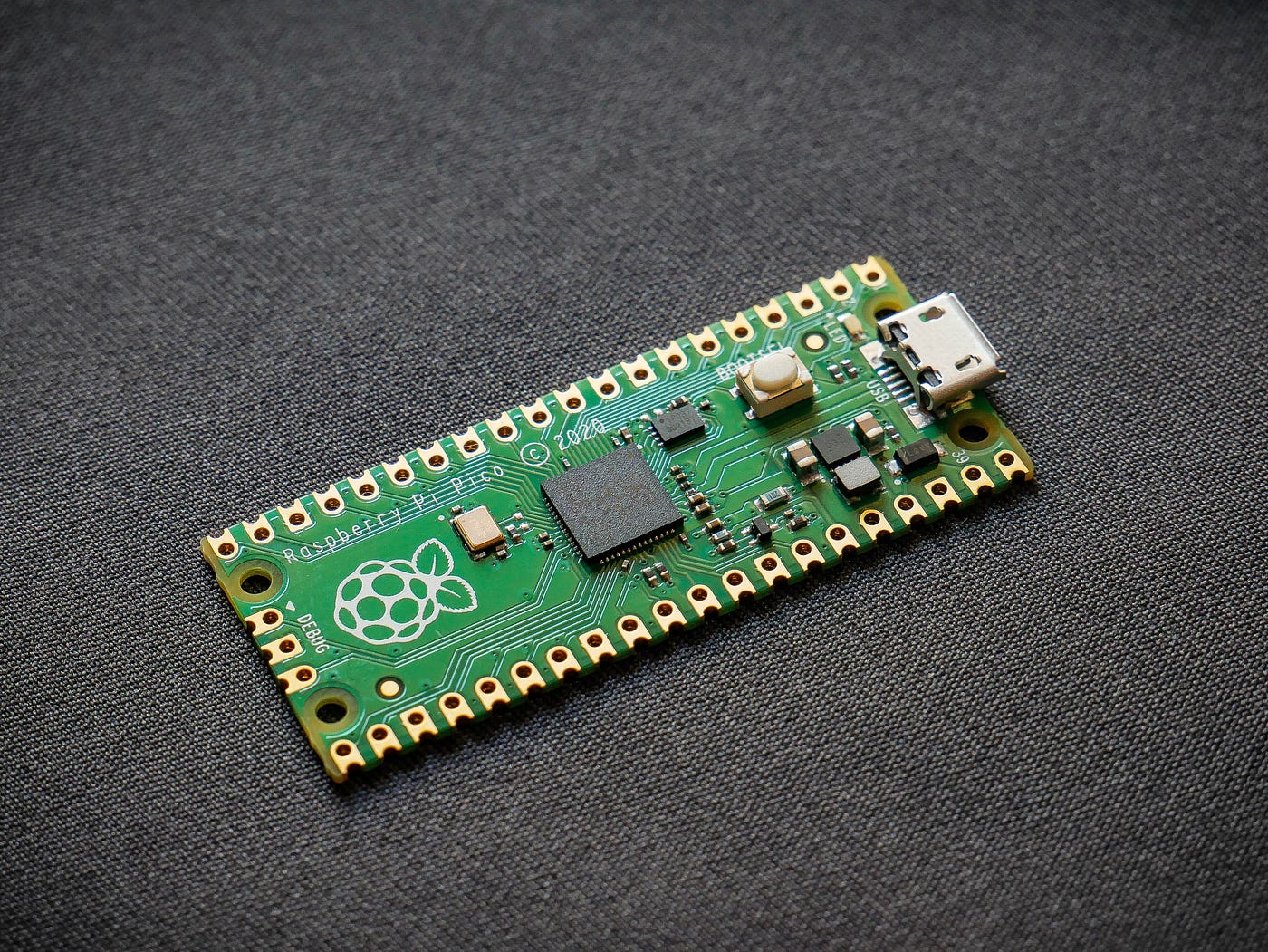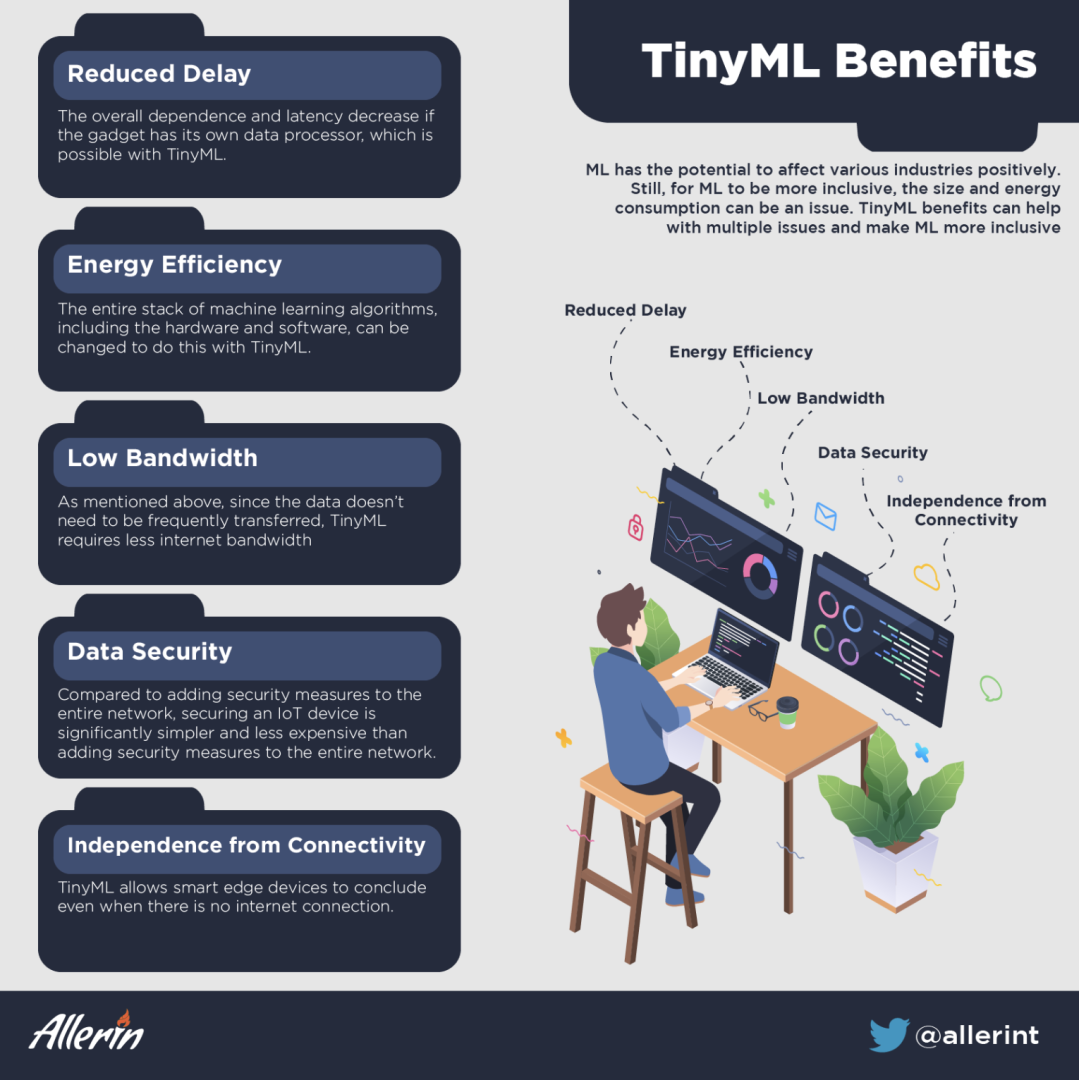Comments
- No comments found

As the world becomes more connected, the need for smarter and more efficient devices grows.
The emergence of the Internet of Things (IoT) has enabled devices to communicate and share data with each other, leading to the creation of a vast network of interconnected devices. However, the size and power constraints of many IoT devices make it challenging to implement machine learning capabilities. Enter TinyML, a revolutionary technology that brings the power of machine learning to the smallest of devices. In this article, we’ll dive into everything you need to know about TinyML, including its definition, applications, benefits, and challenges.
TinyML refers to the use of machine learning algorithms and models on extremely small devices with limited processing power, memory, and energy resources. These devices, known as microcontrollers, typically have less than 1 MB of memory and consume minimal power. TinyML algorithms are designed to be highly optimized for these devices, allowing them to perform complex tasks such as image and speech recognition, anomaly detection, and predictive maintenance.
TinyML is a versatile technology that can be utilized in various industries. One of the most promising areas where TinyML can be applied is healthcare. By using TinyML-powered devices, healthcare providers can monitor patients' vital signs and detect anomalies in their data, which can help them identify potential health risks and provide prompt treatment.
In the manufacturing industry, TinyML can be used to optimize machine maintenance and reduce downtime. By detecting anomalies in equipment data, manufacturers can predict when maintenance is needed and avoid unexpected breakdowns, saving time and money.
Another promising application of TinyML is in agriculture. By monitoring soil moisture, temperature, and other environmental factors, TinyML can help farmers optimize crop yields and make more informed decisions about irrigation and fertilization.
In the realm of smart homes, TinyML can be used to create devices that can learn user preferences and automate routine tasks. This can make life more convenient for users and help them save time and energy.
The potential applications of TinyML are vast and diverse, and its use is expected to continue to grow as more industries embrace its capabilities.

TinyML offers various advantages such as improved efficiency, enhanced privacy, and reduced latency. One of the main benefits of TinyML is that it enables IoT devices to perform complex tasks while consuming minimal energy. As a result, devices can operate for longer periods without the need for frequent recharging or battery replacement.
Moreover, TinyML algorithms allow devices to perform machine learning tasks locally, reducing the need for data to be sent to the cloud. This not only enhances privacy but also reduces the bandwidth required for data transmission.
In addition, TinyML can enable real-time decision-making, reducing the latency associated with sending data to the cloud for analysis. This is particularly useful in applications where decisions need to be made quickly, such as in autonomous vehicles or industrial automation.
The benefits of TinyML are numerous, and its use is expected to grow rapidly in the coming years.
While TinyML holds a lot of promise, it also faces several significant challenges.
One of the most significant challenges is the limited resources available for it to operate on.
Microcontrollers have limited processing power, memory, and energy resources, which requires highly optimized algorithms to run.
Additionally, acquiring the vast amounts of data needed to train machine learning models can be difficult for some applications. Lastly, developing and debugging highly efficient and optimized algorithms can be challenging, adding another layer of complexity to TinyML.
The future of machine learning in IoT devices looks promising, as TinyML enables new use cases and applications that were previously not possible. As more devices are connected to the internet, the demand for intelligent and autonomous devices that can make decisions based on data is increasing.
In the future, TinyML is expected to become even more ubiquitous, powering a wide range of devices in various industries. With the ability to perform complex tasks with minimal energy consumption, TinyML has the potential to transform entire industries, from healthcare to agriculture and beyond.
Moreover, advancements in hardware and software technology are making it easier to develop and deploy TinyML models, reducing the complexity of the development process. As a result, more companies are expected to invest in TinyML, driving innovation and creating new business opportunities.
However, to fully realize the potential of TinyML, several challenges need to be addressed. These include improving the efficiency of TinyML algorithms, acquiring sufficient data for training machine learning models, and simplifying the development process for TinyML algorithms.
Despite these challenges, the potential benefits of TinyML are significant, making it an exciting area for research and development. As the technology continues to evolve, it is expected that TinyML will play an increasingly important role in shaping the future of IoT devices and machine learning.
TinyML is a revolutionary technology that has the potential to transform the way we interact with the world around us. Its applications are vast, and its benefits are numerous. However, the challenges of developing TinyML algorithms and models that are highly efficient and optimized for microcontrollers cannot be overlooked. As technology continues to evolve, the future of TinyML looks bright, and we can expect to see it being integrated into an ever-increasing number of IoT devices.
Naveen is the Founder and CEO of Allerin, a software solutions provider that delivers innovative and agile solutions that enable to automate, inspire and impress. He is a seasoned professional with more than 20 years of experience, with extensive experience in customizing open source products for cost optimizations of large scale IT deployment. He is currently working on Internet of Things solutions with Big Data Analytics. Naveen completed his programming qualifications in various Indian institutes.
Leave your comments
Post comment as a guest